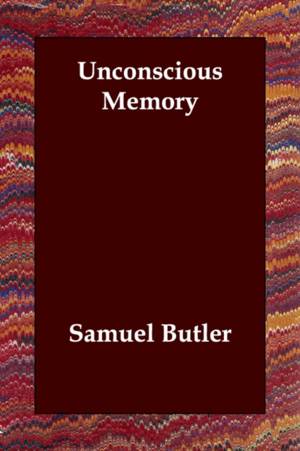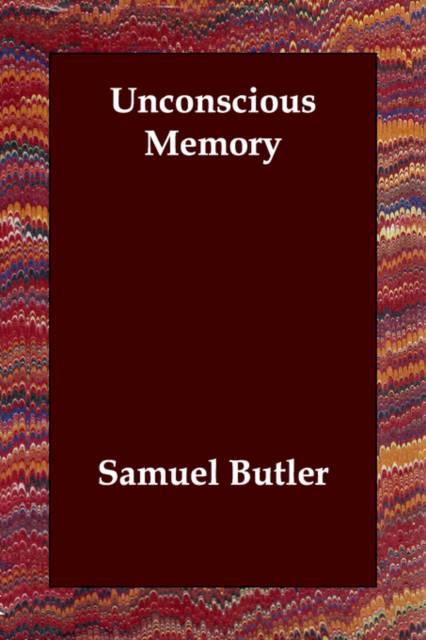
Wil je zeker zijn dat je cadeautjes op tijd onder de kerstboom liggen? Onze winkels ontvangen jou met open armen. Nu met extra openingsuren op zondag!
- Afhalen na 1 uur in een winkel met voorraad
- Gratis thuislevering in België vanaf € 30
- Ruim aanbod met 7 miljoen producten
Wil je zeker zijn dat je cadeautjes op tijd onder de kerstboom liggen? Onze winkels ontvangen jou met open armen. Nu met extra openingsuren op zondag!
- Afhalen na 1 uur in een winkel met voorraad
- Gratis thuislevering in België vanaf € 30
- Ruim aanbod met 7 miljoen producten
Zoeken
Omschrijving
Butler (1835-1902) was the iconoclastic English author of the Utopian satirical novel Erewhon (1872) and the semi-autobiographical The Way of All Flesh, published posthumously in 1903, both of which have remained in print since first publication. In other studies he examined Christian orthodoxy, evolutionary thought, Italian art, and also made prose translations of the Iliad and Odyssey which are still consulted today. He grew up in an oppressive home environment, chronicled in The Way of All Flesh, and his relationship with his father was largely antagonistic. During his early schooling at home he was subjected to frequent beatings and was then sent to Shrewsbury School, where his grandfather had been headmaster, aged 12 where conditions were also hard. In 1854 he went up to St John's College, Cambridge, obtaining a first in Classics in 1858. Whilst preparing for his ordination into the Anglican clergy he began questioning his faith and in 1859 emigrated to New Zealand where he became a successful sheep farmer, wrote A First Year in Canterbury Settlement (1863) about his experiences, and worked on his masterpiece Erewhon. In 1864 he returned to England taking rooms near London's Fleet Street where he lived for the rest of his life. Erewhon appeared anonymously, arousing much speculation about its authorship, and when Butler revealed himself the book made him a well-known figure. An inheritance allowed him to holiday in Italy each summer which resulted in his works on Italian landscape and art including Ex Voto (1888), and he produced several more books, including Erewhon Revisited. In this work of 1880 Butler includes translations of Professor Ewald Hering's lecture 'On Memory as a Universal Function of Organised Matter' and analyses Edward von Hartmann's philosophy of instinct, showing himself to be engaging with some of the contemporary European discussions that ran contrary to Darwinian theory. Whilst his own theory that heredity was a mode of memory and instinct was inherited memory was not ultimately scientifically convincing, his insights on unconscious memory have been seen as an anticipation of Freudian subconscious and the field of social psychology.
Specificaties
Betrokkenen
- Auteur(s):
- Uitgeverij:
Inhoud
- Aantal bladzijden:
- 120
- Taal:
- Engels
Eigenschappen
- Productcode (EAN):
- 9781406800104
- Verschijningsdatum:
- 19/06/2006
- Uitvoering:
- Paperback
- Formaat:
- Trade paperback (VS)
- Afmetingen:
- 152 mm x 229 mm
- Gewicht:
- 185 g

Alleen bij Standaard Boekhandel
+ 22 punten op je klantenkaart van Standaard Boekhandel
Beoordelingen
We publiceren alleen reviews die voldoen aan de voorwaarden voor reviews. Bekijk onze voorwaarden voor reviews.











